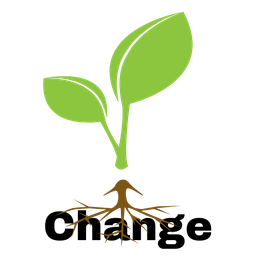
🌱 I'm a Climate Girl, Living a Plastics Life
Part I: Breaking Society's Reliance on Plastics
Hey y'all! 👋🏼
Welcome back! This week's newsletter looks a little different. We're consolidating our newsletters and offering customized views depending on how you participate in social change. Plus, we're starting our Earth Month series! Let's talk about plastics, why they're so bad for the planet and our bodies, and how we can de-plasticize our society. Read on for more...
In Case You Missed It: Abortion, IVF, & Comstock | Believe the Canary in the Coal Mine
🌵 Combining & Customizing Our Newsletters
Most folks who subscribe to the Roots of Change newsletter receive both of our newsletters 🌱 for activists and 📚 for social change communicators. So rather than sending two separate emails a week, we've decided to consolidate so everyone gets a newsletter on the same day.
Everyone now gets one on Tuesdays, but it will be customized. Social change communicators will have a special section with digital comms tips in their newsletter. Choose which newsletter you want to receive:
- for activists: select 🌱 the roots of change newsletter 🌍
- for communicators: select 📚 storytelling for change newsletter 🌍
Upgrade to 🌺 Flowering and 🍋 Fruitful membership tiers to get our weekly article on reshaping digital communications and other resources.
👩🎓 Graduating Out of Plastics
Mr. McGuire: I want to say one word to you. Just one word.
Benjamin: Yes, sir.
Mr. McGuire: Are you listening?
Benjamin: Yes, I am.
Mr. McGuire: Plastics.
If you've seen the 1967 film, The Graduate, with a young Dustin Hoffman, this quote might ring a bell. It comes early in the movie when Hoffman's Ben Braddock is swirling and trying to figure out his future. The advice he gets from a friend of his parents is meant to represent the superficial and stale life he'd have if he follows what his father wants for him. Instead, he wants to be spontaneous and eccentric! It was the 60s after all.
Per The New Yorker, "In the film, “plastics” is understood to mean a cheap, sterile, ugly, and meaningless way of life, boring almost by definition—the embodiment of everything about the values of the older generation." Oddly, the meaning of that rings more true now than it would have been back in 1967. The consequences of certain people in older generations hoarding wealth and pushing capitalism to the max are becoming more visible, especially in the industries related to plastics. It's a representation of how capitalism takes away creativity and durability in exchange for profit and unlimited growth. This year, Earth Day 2024 is all about planet vs. plastics. It's about making visible what is often invisible.
So that's what we're doing for the Roots of Change newsletter! I had already heard that we're consuming plastics more in our food, our clothes are increasingly plastic, and there's a plastic trash pile larger than most states floating in the ocean, but there was a lot I did not know about plastics! It's an eye-opening experience to realize how ubiquitous and yet obscure the industry is.
Most of the research I cite in today's article is based on the book, 'Plastic Unlimited: How Corporations Are Fueling the Ecological Crisis and What We Can Do About It' by Alice Mah.

🥽 Living a Plastics Life
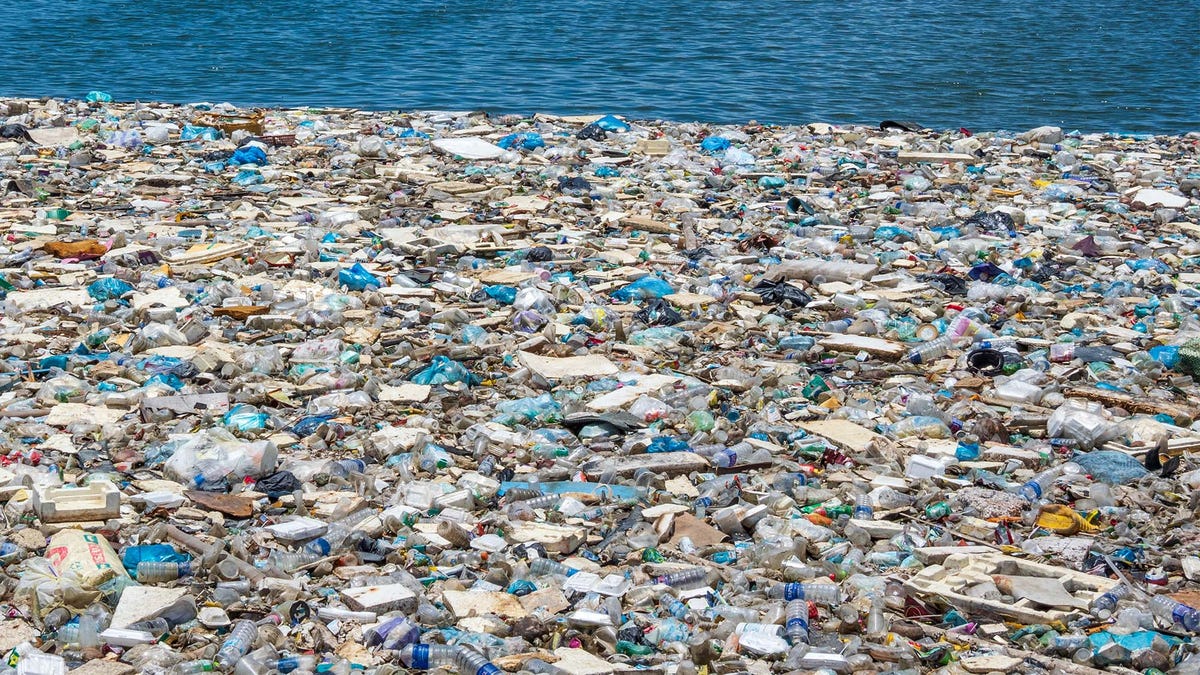
Ultimately, the Great Pacific Garbage Patch that floats in the North Pacific Ocean is the most visible representation of the crisis. It's just part of the 11 million tons of plastic that is already in Earth's oceans, which will sound small in 2040 when we have 29 million tons clogging our waters. Scientists now expect there will be more plastic than fish in the ocean by 2050. However, by focusing on the end part of the plastics cycle, we lose sight of the production and industry that is pushing for the never-ending expansion of plastics.
First, what are plastics? They're fossil fuels! Yes, that thing that we're trying to divest from using and extracting from our Earth. Plastics are 99% petrochemicals and are made from a raw form of fossil fuels called feedstocks.
The end product can be whatever you want it to be, which is a recipe for never-ending growth on a finite planet. Plastic now is in all of our tech devices, our cars, and even our clothes. We visibly see the takeout containers and plastic cups, but plastic has been embedded into most industries. Naturally, the industry's case is that "a world without plastics would be worse" when climate activists work to shift away from plastics and fossil fuels. We are over-reliant on plastics and it will take time to disentangle our society from plastics, but we have to first start by divesting.
💰 Big Plastics, Big Business, & Fossil Fuels
When people talk about Big Plastics, they're usually referring to the full chain starting with fossil fuels and biofuels to the plastics market and ending with recycling and waste management. At each layer, there are significant climate risks involved, but our focus has primarily been on recycling.
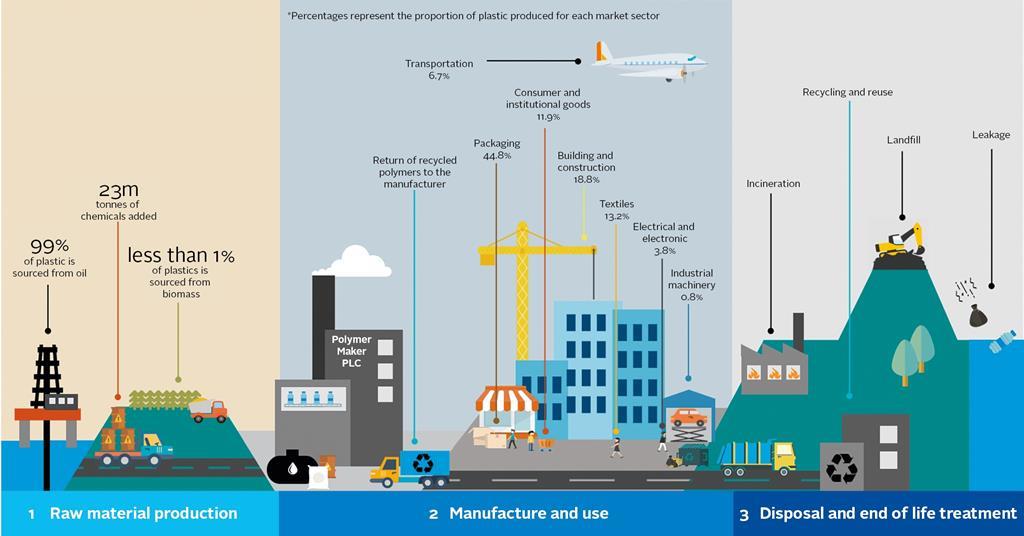
Images of fish, turtles, and baby seals washing up on shore stuck in plastic get the most headlines because they reach us at our core. They bring up emotions in us, which makes us want to act! The easiest way to act has been to address what we directly see in front of us. That has included banning plastic straws, limiting reusable plastic bags, and bringing your coffee mug to work. However, by only focusing on what we can see, we miss out on how much plastics have infected our lives.
We must open our eyes to the full picture so we can begin to hold corporations responsible. We are living the consequences of an industry that has polluted our planet to mass-produce cheap products that can't be recycled. The plastics crisis is the embodiment of the plight of imperial living that you either live (likely in a Western country) or witness the consequences of (likely in the Global South or poor areas of Western countries).
This month we're going to talk about the industry of plastics, why it’s so bad for us and the planet, how Gen Z is changing trends, and what de-plasticing life looks like from the personal to the systemic. See you next week for more! In the meantime, check out last year's climate series about capitalism, degrowth, and climate.
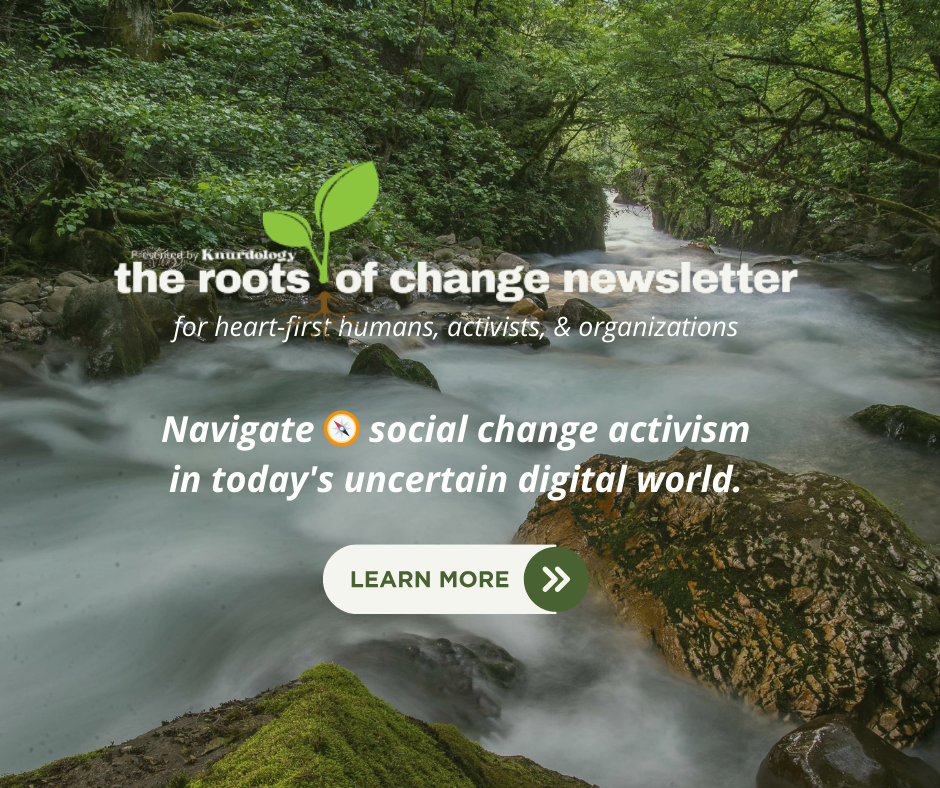
Enjoying our newsletter? Subscribe for the full monthly series, learn how to navigate 🧭 social change activism in our digital world, and support our 100% reader-supported work.

🌱 News with a Social Change Lens
- 📚 EPA Killed the Small Car - The EPA updated its emission standards in 2012 with higher standards for “passenger cars” than for “light trucks.” Naturally, car companies made more light trucks!
- 🤓 The Root 🌱 - This New Republic story highlights how a simple EPA rules change in 2012 has led to major unintended consequences and bigger cars on the road.
- 📸 Principles of Disability Justice - @HealthJusticeCommons shared this carousel guide. "The Disability Justice framework can be a beacon and guide for us."
- 🤓 The Root 🌱 - Disability justice has become more important while COVID-19 continues to infect and disable people. As we watch a rise in eugenics and anti-vaxxers, it's important to build inclusive movements. After all, liberation is for all.
- 📚 Social Media Usage Down - this week, NBC reported that Twitter usage is down 23% since Musk took over, but it’s a trend. Each major social app saw a decline in user base.
- 🤓 The Root 🌱 - It’s unsurprisingly to see an exhaustion of social media as the apps get worse. The youths are going offline and touching grass to break from the algorithms.
- 🎬 Biden Sends More Weapons to Israel - Despite the rising outrage by voters (75% of Democrats disapprove), Biden & Democratic leaders continue to sidestep Congress to send arms shipments to Israel to use on Gaza.
- 🤓 The Root 🌱 - The threat of Trump is very real and most voters are aware of this. Why is Biden not listening to voters and recognizing the threat? Keep calling & protesting! 🍉

🤖 Relying on Superficial Tech to Humanize
In the faux-idyllic time of the 1950s, plastic once was the technology of the future. It did not matter what the problem was, plastics were so versatile that it could be solved. Ultimately, the idea of plastic is about the sanitization of things. The smoothing out and sanding down of any differences. Durability is replaced with its cheap price point and easy applications. It's de-diversifying our environment and flattening our society in the name of convenience.
In a post-pandemic, AI-dominated tech world, I'm increasingly seeing a digital experience that is working to sanitize our lives. Social media platforms already inherently take away uniqueness by creating one platform with the same look for all users. Social media algorithms incentivize behavior and types of posts, which makes our feeds begin to look repetitive.
One of the biggest advantages for organizations and activists right now is by being authentically themselves. When it comes to communications, the tone of your messaging can make a big difference to stand out to your audience. Ask yourself these questions to see if you want to begin that transformation:
- How is your organization's personality coming through in your communications?
- Where in your content strategy can you personalize your message?
- Is something about your strategy or process causing your message to feel less humanized?
- What tweaks or changes need to be made to adjust your message tone?
On Thursday, we'll discuss using 🕹 automation to build customized experiences. Upgrade to 🌺 Flowering and 🍋 Fruitful membership to get the full article.
🎟 Next Week's Lunch & Learn | Get the Most Out of Events
As the weather starts to heat up, so does the political action! We can grow and strengthen our movements by merging in-person experiences or featured digital events with digital touchpoints.
- When: Wednesday, April 10th
- Time: 12:00-12:30 pm EST / 9:00-9:30am PST

Joe Cardillo (they/them) was a fountain of insights on how to live and breathe your activism. In the 2nd part of our chat, we dive into what a humanized tech world could look like, our own inner growth, and the unique challenges of being white & queer anti-racist activists. Find our latest videos on our 🎬 Quick Bites page.
@roots.of.change Who owns head and hearts in the platform era? 🎧 Listen to the roots of change podcast with Joe Cardillo about envisioning a humanized tech future.
♬ original sound - Sam @ Roots of Change - Sam @ Roots of Change
And that's a wrap on this week’s newsletter! We hope you found this helpful in your work. Forward this to a friend and help democratize communications! If you have any topics you want covered or have any questions, please reach out and let me know.
In Solidarity,
Sam Chavez
Roots of Change Founder
Next Up
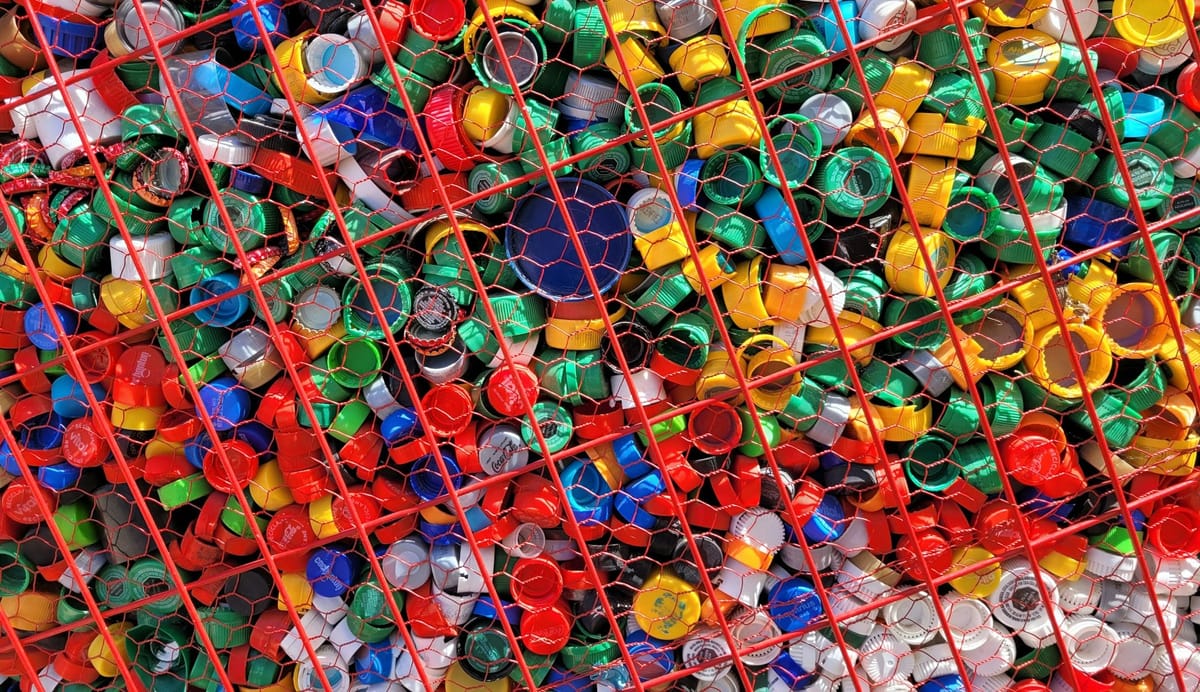
the roots of change media Newsletter
Join the newsletter to receive the latest updates in your inbox.

